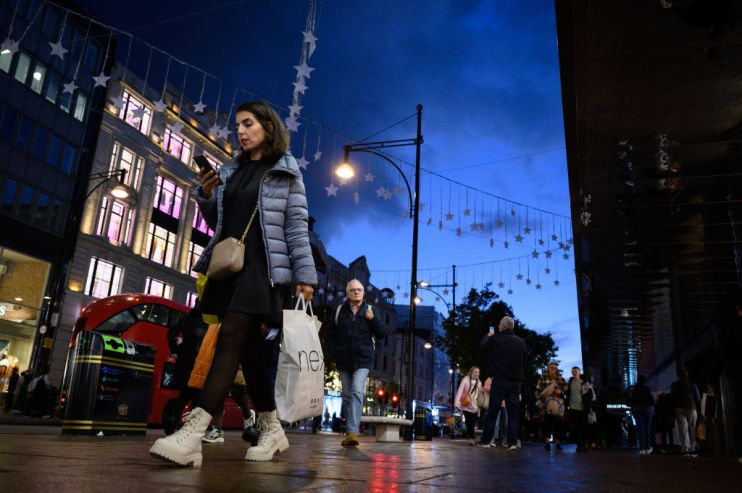Soaring inflation and tax hikes to squeeze UK economy

TAX hikes, soaring inflation and an end to pandemic-related government support is souring the UK economy’s prospects, according to City analysts.
Brits’ spending power will be eroded by the intensifying cost of living crisis, restricting their ability to splash the cash and drive the economy, analysts at Deutsche Bank warned today.
Inflation is accelerating at the fastest pace in nearly a decade, climbing to 4.2 per cent last month, up from 3.1 per cent in September, according to the Office for National Statistics.
Fiery price rises are threatening to derail the UK’s economic recovery from the Covid-19 pandemic by crimping consumers’ willingness to spend.
The UK economy is heavily reliant on the services industry to generate growth, meaning a sharp slowdown in consumer spending will produce severe downside shocks to the country’s growth prospects.
The British economy will grow just 3.6 per cent next year, much lower than the Bank of England’s forecast of five per cent, experts at the German investment bank have predicted.
A combination of historically high inflation and tax hikes will cost the UK economy around £13.5bn next year, roughly 0.6 per cent of GDP.
Sanjay Raja, UK economist at Deutsche Bank, said: “As we turn the page on 2021, one thing is clear: consumers are already starting to feel the pinch of eroding spending power.”
“This has already started to filter through into recent consumer confidence data, which paints a bleaker picture of weakening confidence in both households’ economic and personal financial outlooks.”
In a separate note published today, British bank Barclays estimates the UK economy will expand 6.9 per cent this year, and then 4.1 per cent next year, before cooling to settle around its pre-pandemic trend of 1.3 per cent in 2023.
The lender expects the global economy to grow six per cent this year.
“Supply chain problems have not just persisted; new ones have arisen. Inflation has been much stronger, for far longer, than central banks expected,” Ajay Rajadhyaksha, head of macro research at Barclays, said.